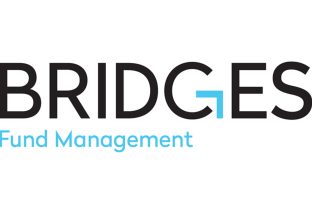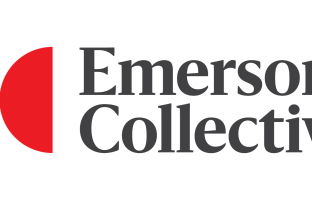The “Know Your Audience” series on the HBS Recruiting Blog highlights trends in recruiting for various industries. Learn more about student interest, effective recruiting strategies, and best practices from HBS staff dedicated to your industry.
Meet the Team
Jonathan Shepherd – Corporate Relations Director and Career Coach
Katja Frey – Recruiting Relations Manager
Together, Jonathan and Katja make up the Career & Professional Development team that manages relationships with venture capital firms and works closely with students interested in the industry. In addition to over a decade of prior finance experience, they bring a combined 14 years of Career & Professional Development expertise, helping firms develop their HBS recruiting strategy and connect with students.
A Vested Interest in Venture Capital
HBS students are highly motivated to enter the venture capital field and are eager to use their business acumen to identify growing companies and help them prosper. Each year, Jonathan and Katja see several hundred students join the Venture Capital & Private Equity Club, engage in educational programming, and apply for venture capital roles. Then there are the interactions that happen outside of HBS as students proactively pursue venture capital firms that have not traditionally recruited at HBS. All of this student interest creates an opportunity to bring in top talent to help your firm succeed.
Students interested in venture capital come from a range of backgrounds including banking, private equity, and technology. The diversity of backgrounds is another benefit to firms as they look to fill different roles. Students with strong analytical and valuation skills will be an ideal fit for some positions, while others with deep industry experience and operating backgrounds are a better match for others. For some roles, it’s a combination of the two. With a large class size, venture capital firms can find the skill sets they need coupled with the drive and passion of students who will enter their firm ready to make an immediate impact.
Adding Structure to the Hiring Process
For the Class of 2019, 20% of students who sought and accepted a job joined venture capital and private equity firms after graduation. This represents a large number of students, a large number of firms, and many more conversations, emails, and meetings between candidates and employers. The venture capital recruiting process involves a commitment of time to build connections and develop relationships so that students can showcase how their skills will be a match for the firms’ needs and firms can get to know candidates.
Relatively few venture capital firms participate in a formal recruiting process. Instead, many rely on student outreach to initiate a series of conversations rather than traditional interviews. Students respect this process and are very willing to put in the effort to connect and be flexible. At the same time, Jonathan notes, “To the degree that venture capital firms can be clear about what the structure of the hiring process is and keep lines of communication open, students greatly appreciate that.”
As you begin connecting with students, consider if there are deadlines or key milestones that should be conveyed to candidates. Or, if the hiring process is in flux, reconnect with students at set intervals so they know where they stand. This added level of structure and expectation setting benefits both students and firms as top candidates consider multiple opportunities with differing timelines.
Building Awareness and Making Connections
For firms that do want to engage with students through a formal recruiting process, the Career & Professional Development team is here to help. Our office can schedule your interviews, connect you with students through the resume book, or advertise your events.
“If you are a new fund or a lesser known brand, think about what differentiates you in the market,” says Jonathan. Students will be eager to learn about you, your investment strategy, and your portfolio companies. Whether you deliver this message in a presentation format or in 1:1 conversations, clearly communicating your firm’s unique selling points will help you connect with the right students.
In addition, Katja finds that firms who offer opportunities to learn what working in venture capital is really like through 1:1 conversations and industry education events are very successful in recruiting. HBS students have broad and deep skill sets that are valuable in the industry, but there are relatively few who have pure venture experience before business school. Educating students on what being a venture capitalist really looks like, particularly at your firm, will always be a draw for students excited to learn and determine if this is the right career path for them.
Investing in a Summer Intern, or a Summer Project
Bringing on a summer intern is a great opportunity for venture capital firms to benefit from students’ analytical skills and industry expertise, and to get to know candidates who could be the right long-term match for the firm. To inform students about an internship or full-time role, you can post the role in our recruiting platform and share the posting with the Venture Capital and Private Equity Club. This is also an option to consider for your portfolio companies seeking an HBS intern over the summer. If your portfolio companies are interested in hiring, opportunities can be sent directly to Katja for distribution to students.
A formal internship program is not the only way to work with HBS students over the summer. “We understand that it can be challenging for some firms to take on a summer intern due to space, time, and resource constraints,” said Jonathan. “If a firm feels that they could benefit from additional research capabilities, but doesn’t have the bandwidth to take on a formal intern, then the HBS Summer Fellows program offers a great opportunity that benefits firms and students.”
Through the Summer Fellows program, HBS provides financial resources that allow students to take internships at firms that might not otherwise be able to bring them on. Internships can be remote and largely self-directed, whereby a student is given a number of short-term research projects and has weekly check-in calls with the firm to report on findings and recommendations. This is also an option to consider for your portfolio companies seeking an HBS intern over the summer. If your portfolio companies are interested in hiring, opportunities can be sent directly to Katja for distribution to students.
Partner with HBS
Jonathan and Katja are here to partner with venture capital firms to help you foster connections with HBS students and meet your hiring needs. To discuss your recruiting strategy, contact Jonathan and Katja today.







